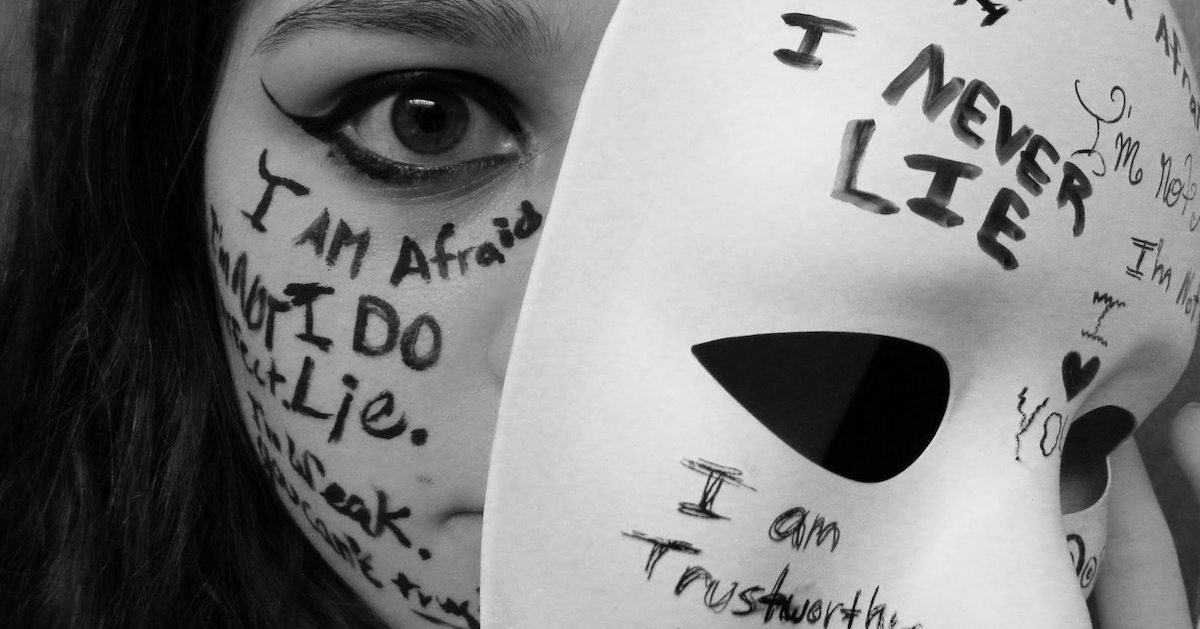MPI’s monthly wellness spotlight brought to you by

How are you? “OK.” How is work? “OK.” How is your health? “OK.”
It’s easier than the truth. There is less fear, stigma and shame when we tell others that we are OK. But what does OK really mean? I believe it is the gray space between happy and sad. So why are so many meeting and event professionals pretending that they are OK? Let’s dive a little deeper into what causes people to pretend that everything is OK.
Pretending to be fine to avoid conflict or our feelings is something we often learn during childhood. We put on the “I’m fine” mask to shield ourselves from the painful feelings or emotions that might be stirred up within us because that is what feels safe to us.
I know so many professionals who pretend to be OK. They do it for their friends, their family and work colleagues not because nothing bothers them anymore, but rather because they feel these people deserve better than honesty. They deserve a happy person—someone who has their life together, who does not feel as lost as some feel inside of themselves. You can pretend to be OK because you do not want pity. Humans want support and love instead.
Pretending to be OK has become somewhat of a habit for many over the years, but that does not mean that it is easy. It can be really hard to keep up the act day in and day out, especially when all you really want to do is curl up under a blanket and let the world fade away. But most persevere because that is what people expect of you and you don’t want to let them down. It’s hard being strong for so many people sometimes! But that’s why pretending is popular.
How people often fake being OK:
- They smile when going through hell.
- They say “I’m busy” when having a mental breakdown.
- They joke and make others laugh because they know what it’s like to feel nothing.
- They empower others in their low moments because they know what it’s like to feel worthless.
- They work hard and uphold their responsibilities only to collapse when they get home.
- They always care for others because they know what it’s like to struggle in silence.
Often, the biggest fear is being a burden. So, if someone does reach out, please don’t dismiss them for attention seeking—they’re reaching out because they really need support.
“Not only is it OK to not feel ‘OK,’ it is essential,” Dr. Jaime Zuckerman, a licensed clinical psychologist and trained cognitive behavior therapist, told the Harvard Business Review. “An abnormal emotional response to an abnormal situation IS normal. We cannot simply pick the emotions we want to have. It just does not work that way.”
Mental illness is not a character defect, but the stigma is. The real question is, how do we stop it?
Seven things you can do to reduce stigma:
- Know the facts. Educate yourself about mental illness, including substance-use disorders.
- Be aware of your attitudes and behavior. Examine your own judgmental thinking, reinforced by upbringing and society.
- Choose your words carefully. The way we speak can affect the attitudes of others.
- Educate others. Pass on facts and positive attitudes; challenge myths and stereotypes.
- Focus on the positive. Mental illness, including addictions, are only part of anyone's larger picture.
- Support people. Treat everyone with dignity and respect; offer support and encouragement.
- Include everyone. In most countries, it’s against the law to deny jobs or services to anyone with these health issues.
When you are pretending everything is alright on the outside, remember that someone somewhere out there might also be doing the same thing as you. Remember that it is OK to not be OK and that there are people out there who understand you.
To learn more about wellness and personal resilience, I recommend following Mary Ann Baynton and Bonnie St. John on LinkedIn.
If you’re not OK and have nowhere to turn, please direct message me at @eventmindsmatter for resources that could support your wellness.



